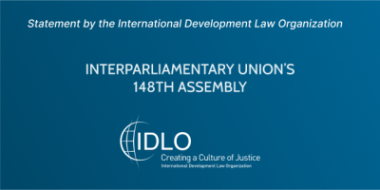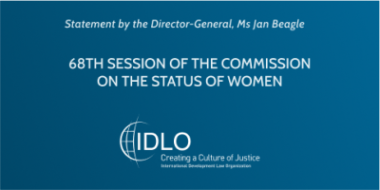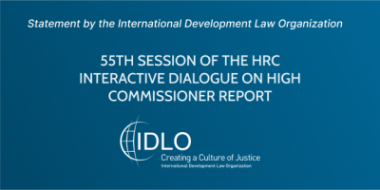Lebanon meeting on Law Enforcement and HIV response
IDLO and partners hosted the Second Regional Consultation on Law Enforcement and the HIV Response in Beirut this week. The consultation was attended by representatives from law enforcement agencies and civil society organizations from seven countries in the region: Algeria, Djibouti, Egypt, Lebanon, Morocco, Palestine, and Sudan.











